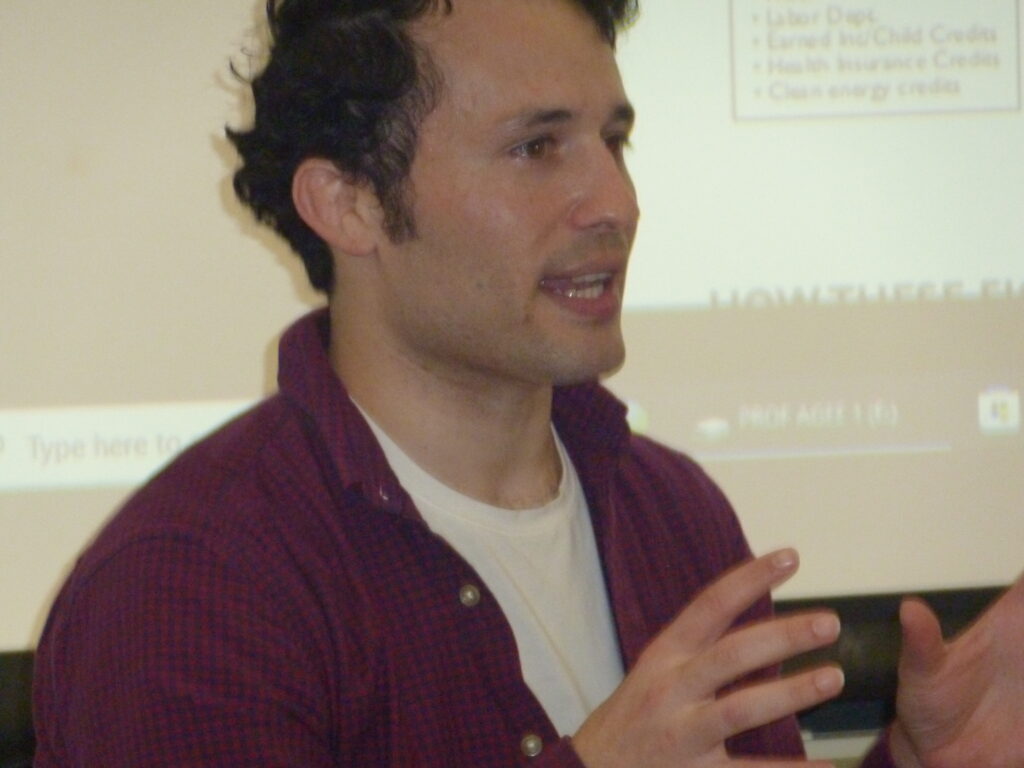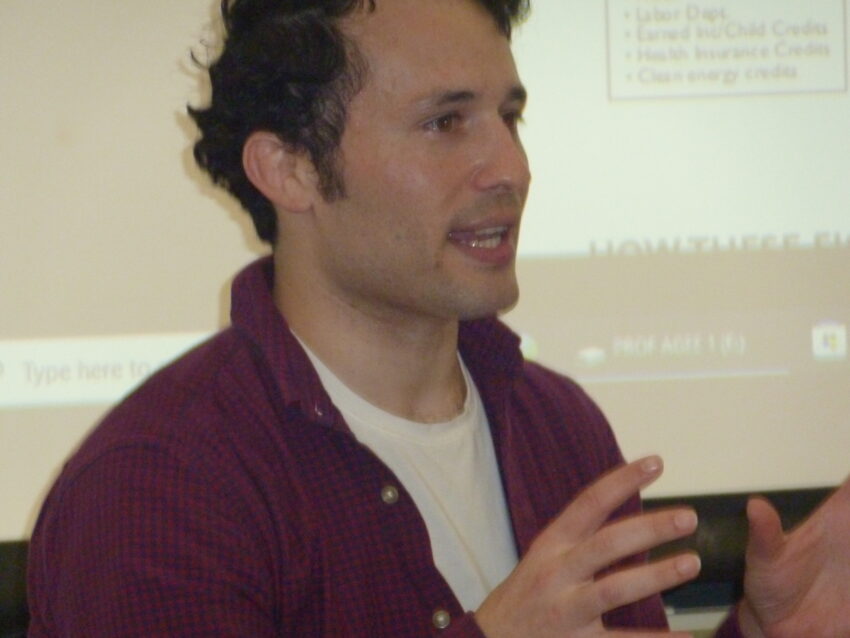Our We Are Not Your Soldiers school visits ended for the spring semester with a presentation by West Point graduate and Army veteran Dean Feinman to two classes at a NYC community college. See this commentary by some NY students at another college he spoke at a couple of weeks prior.

“…the conversation with Dean from We are not your Soldiers was very informative and enlightening. It offered a raw and intimate glimpse into the realities and struggles within military institutions. Dean openly discussed the delicate and often uncomfortable issues of power abuse and the suppression of fundamental freedoms within the army… A substantial portion of the conversation focused on the limitations on troops’ freedom of expression. Dean vividly underlined how, in order to survive and perform inside the military’s rigorous structure, many troops feel obligated to silence their own voices…
Another startling aspect of the discussion centered on the prevalence of sexual assault within the military. I did a little research and saw this recent statistic from 2021, ‘8.4% of active-duty women and 1.5% of active-duty men reported experiencing unwanted sexual contact. This amounts to nearly 36,000 service members who faced such incidents in just one year.’ This deeply shocked me. I do recall asking Dean about this issue. Dean noted that there is a terrible assumption that males cannot be victims of rape, and that sexual assault in the military is
frequently disregarded as hazing. He underlined that both men and women are vulnerable to sexual assault and, unfortunately, training programs designed to avoid such abuses are frequently ignored. Many people see these meetings as just a formality — a requirement to be met rather than a chance for significant knowledge and transformation…”“…The analogy of the military being likened to a machine, with soldiers as mere components that must function without question, was a powerful metaphor that underscored the dehumanizing effects of military training and indoctrination. The idea that soldiers are expected to follow orders blindly, even if they go against their own moral compass, raises important questions about agency, autonomy and the ethical implications of warfare. Moreover, the discussion touched on the psychological toll that military service takes on individuals, often leading to trauma, PTSD and other mental health issues…
The presentation by We Are Not Your Soldiers served as a poignant reminder of the complex and often brutal realities of military service. It challenged us to critically examine the narratives and propaganda surrounding war and to advocate for a more compassionate and just society that values the humanity and dignity of all individuals…”
We recommend reading or watching this interview with U.S. Army Major Harrison Mann, the first military and intelligence officer to publicly resign over the Biden administration’s support for Israel’s war on Gaza.

